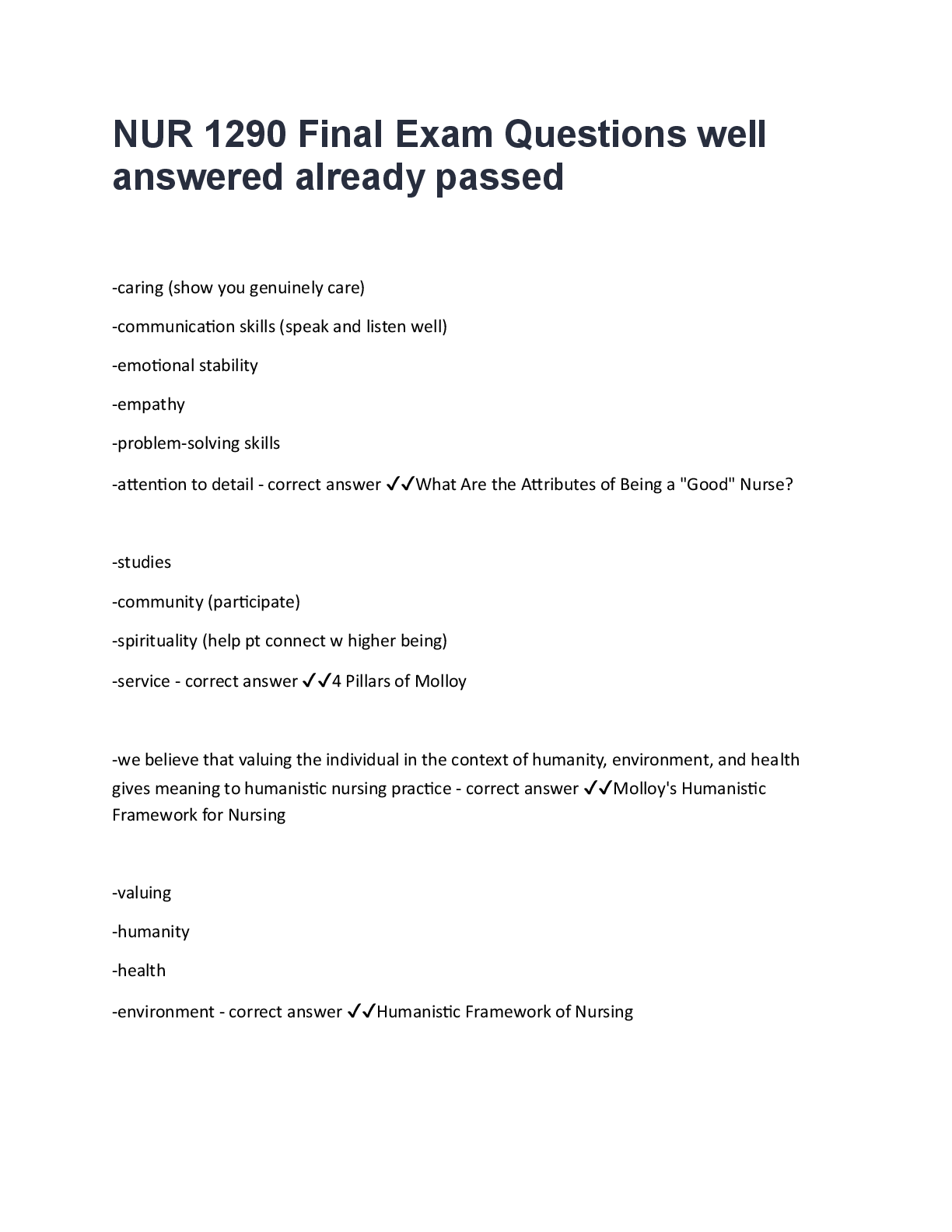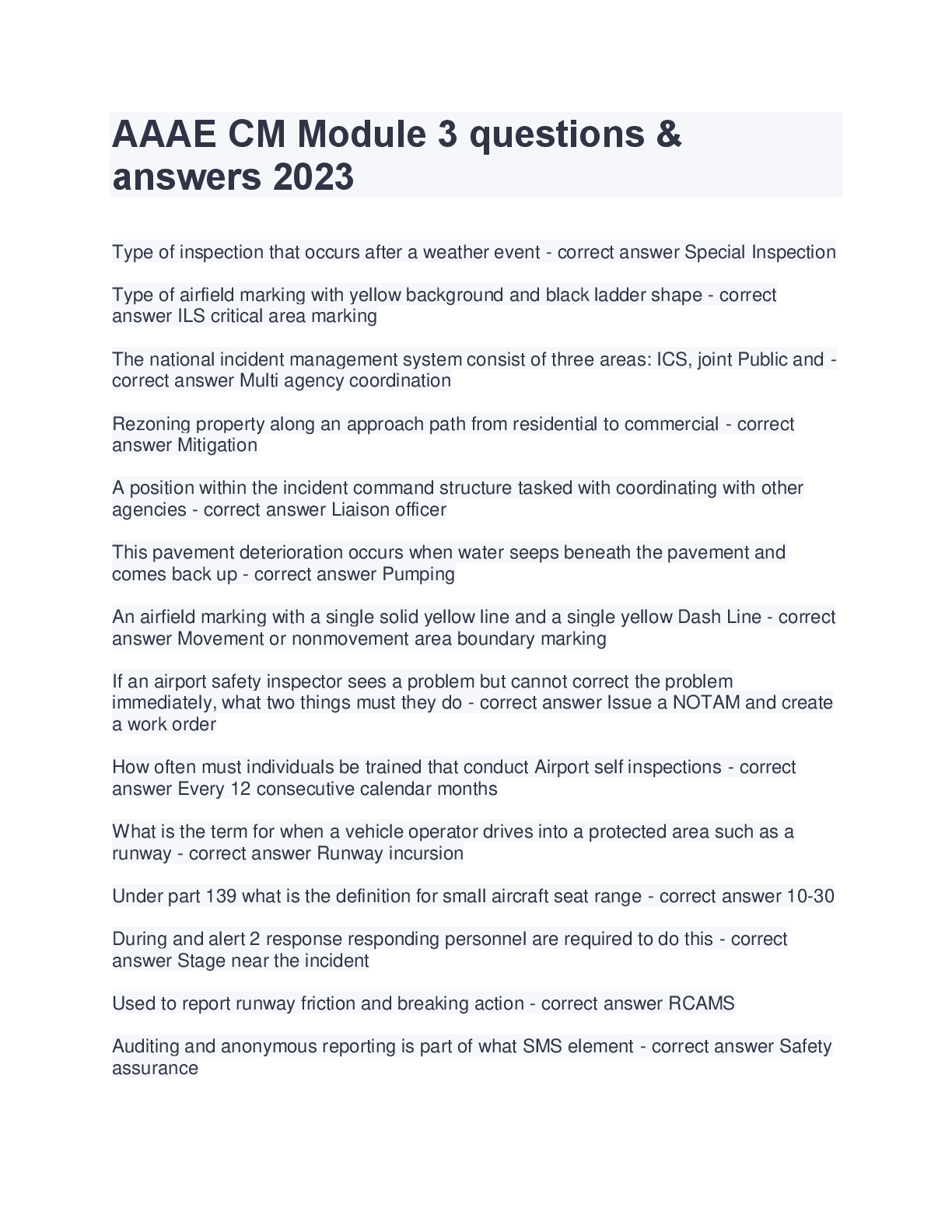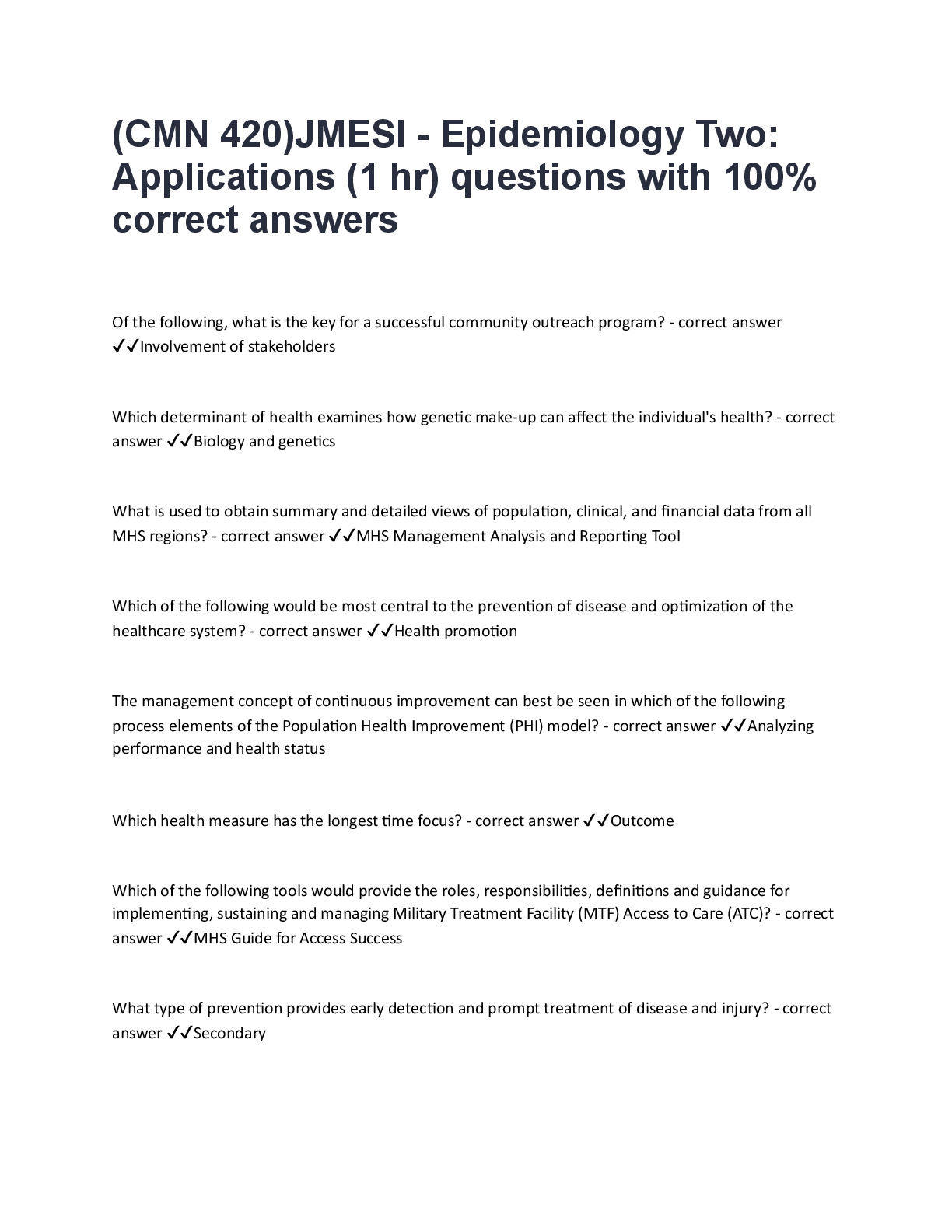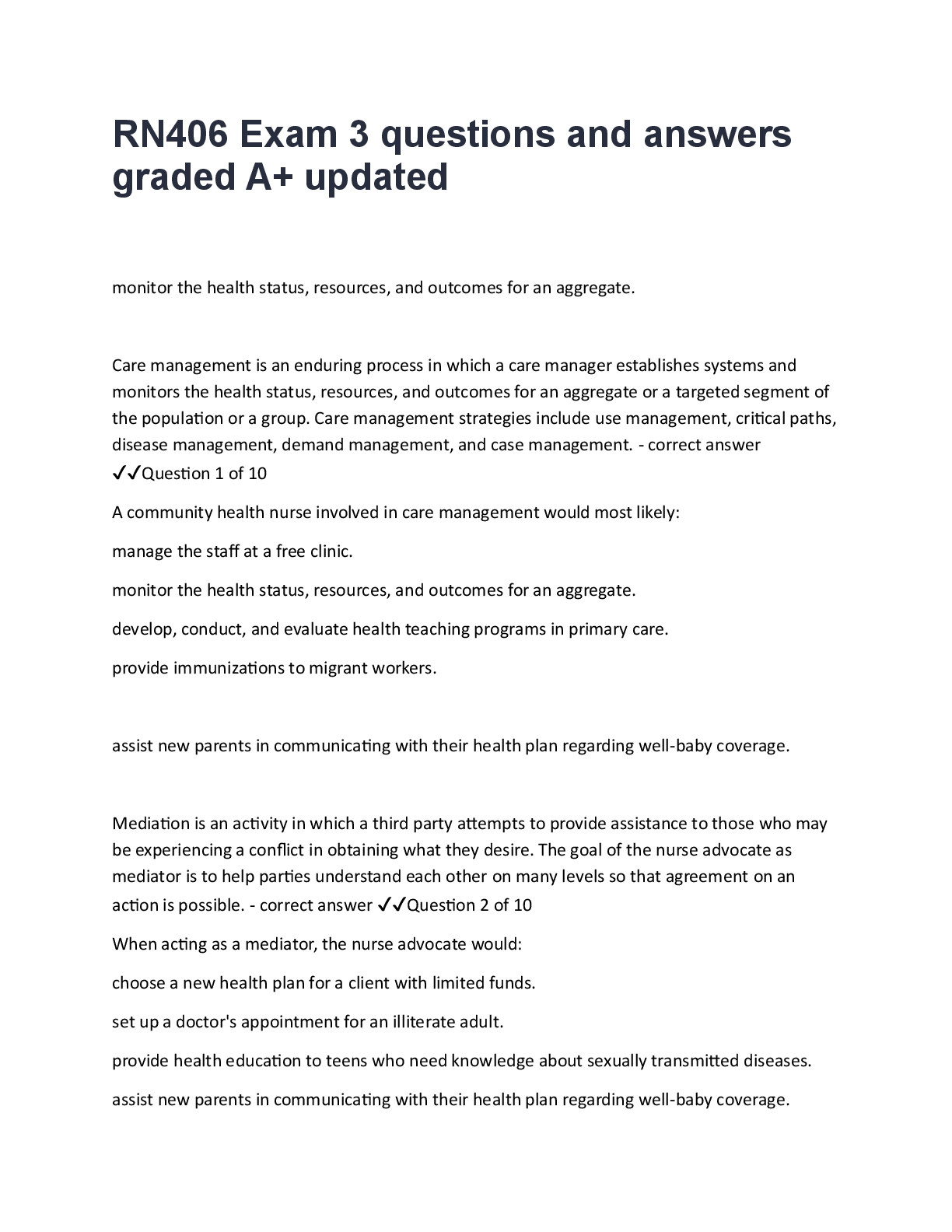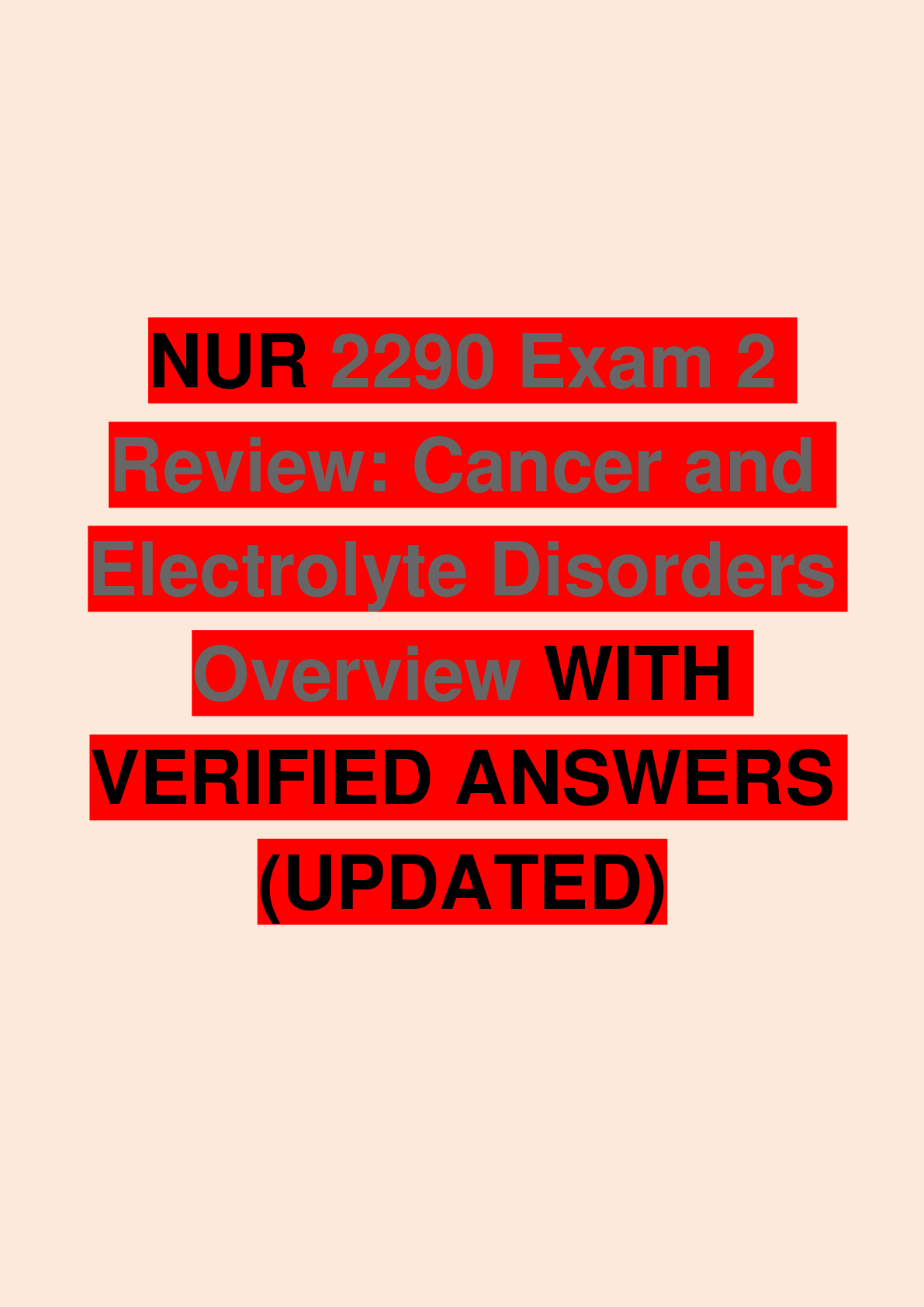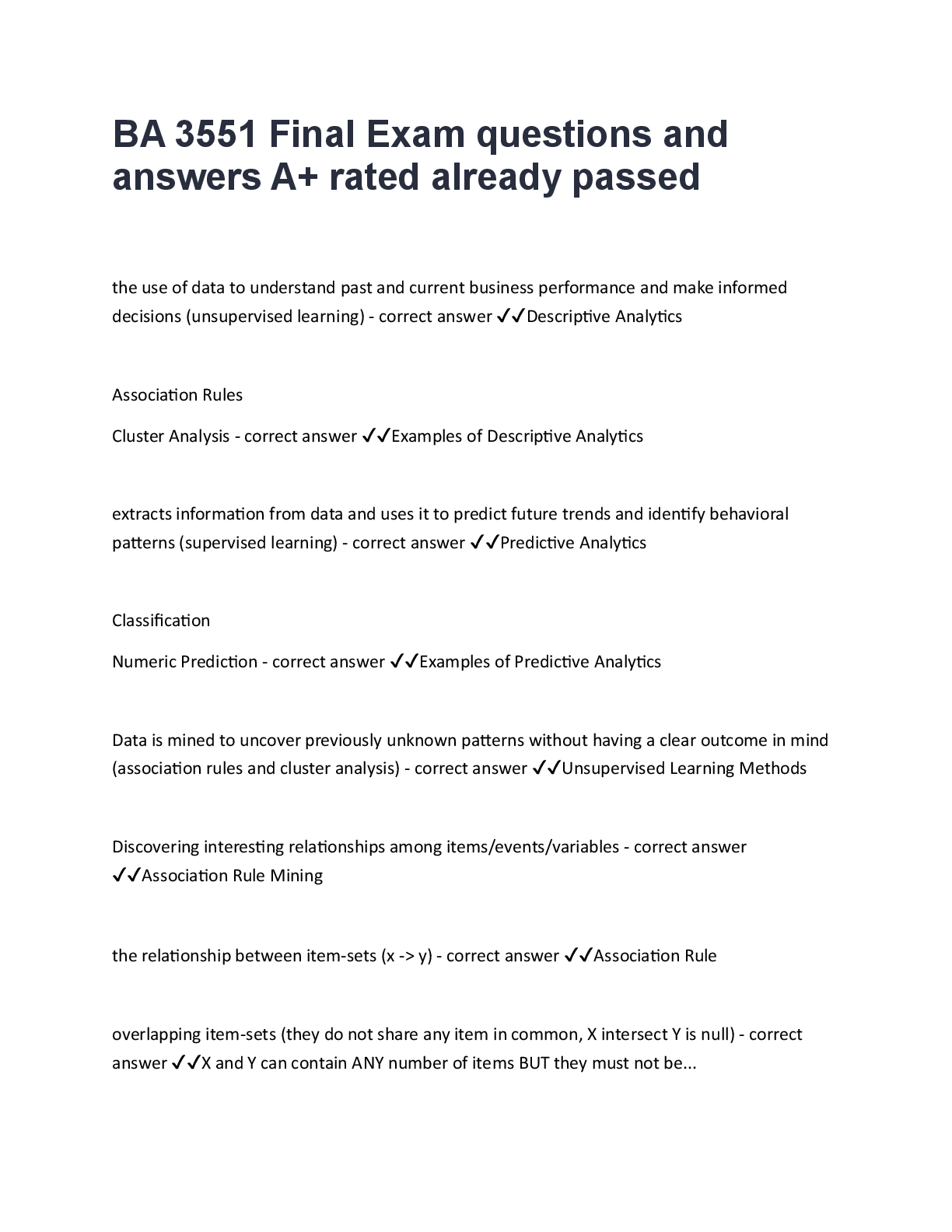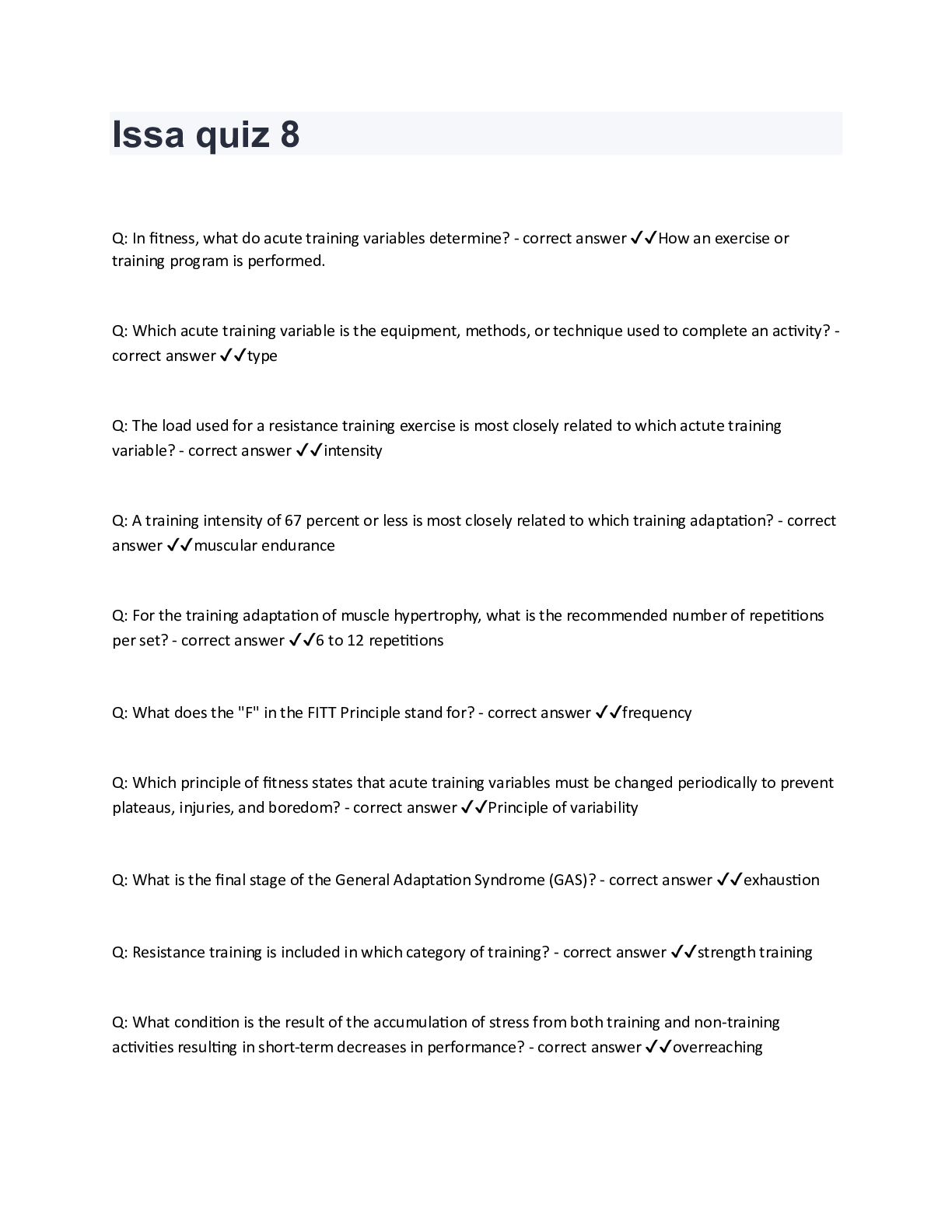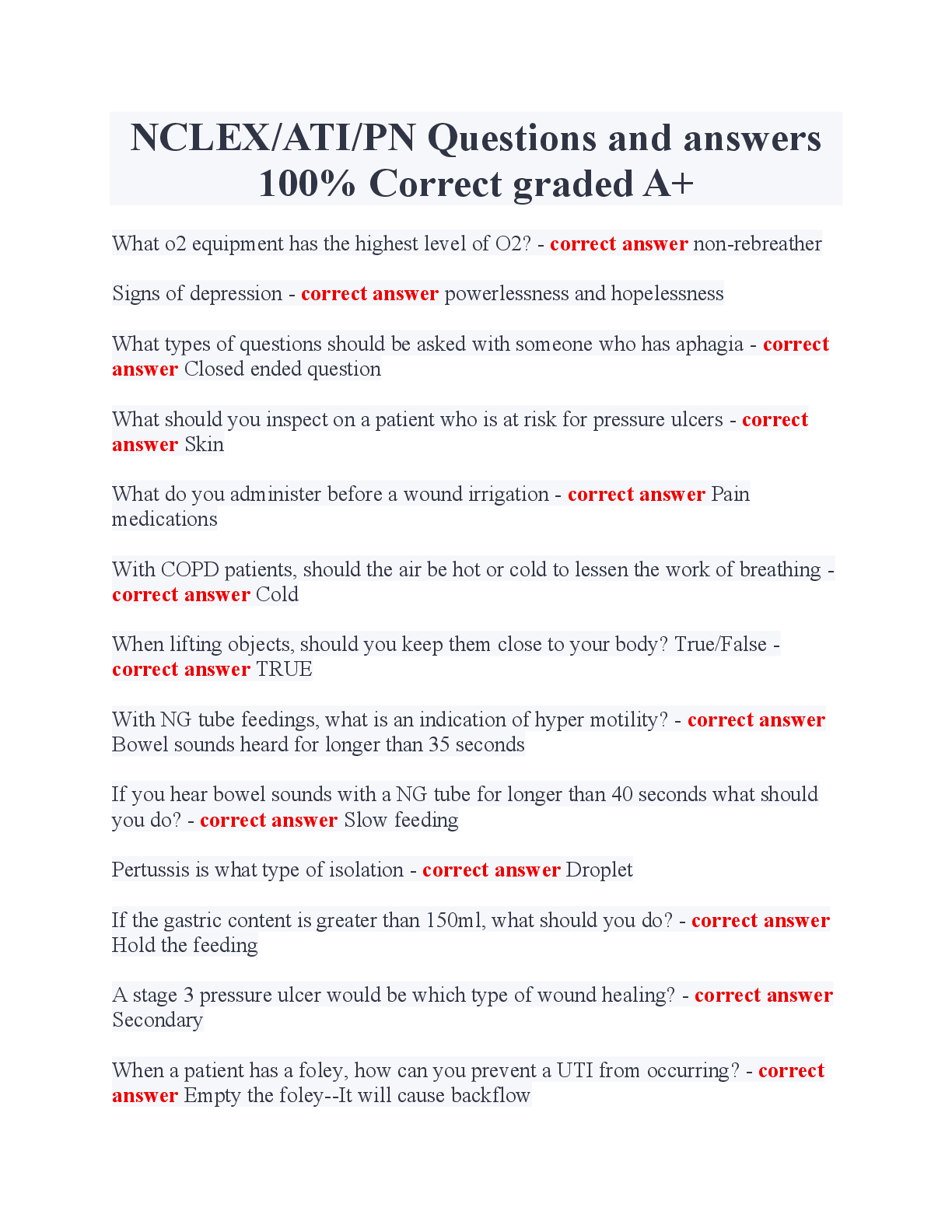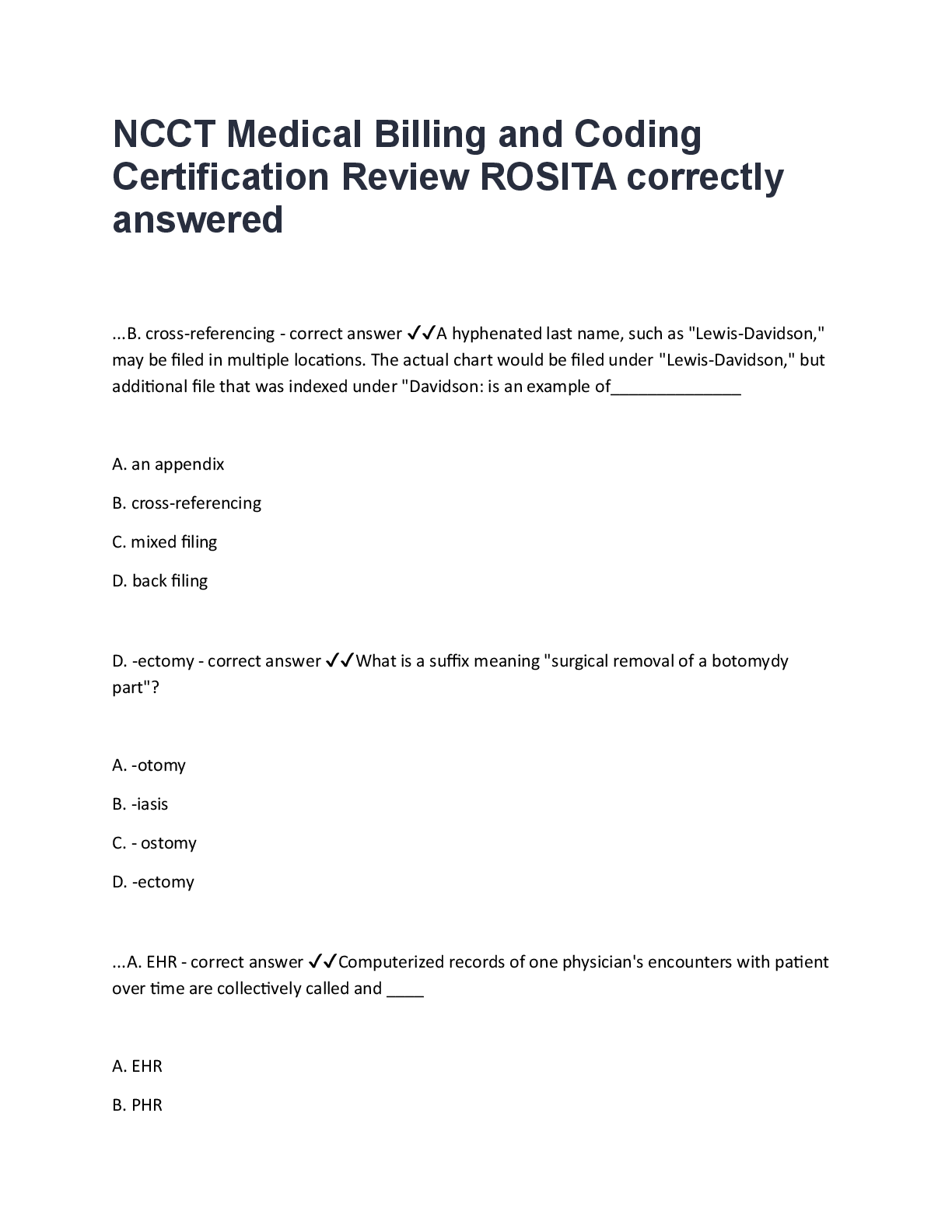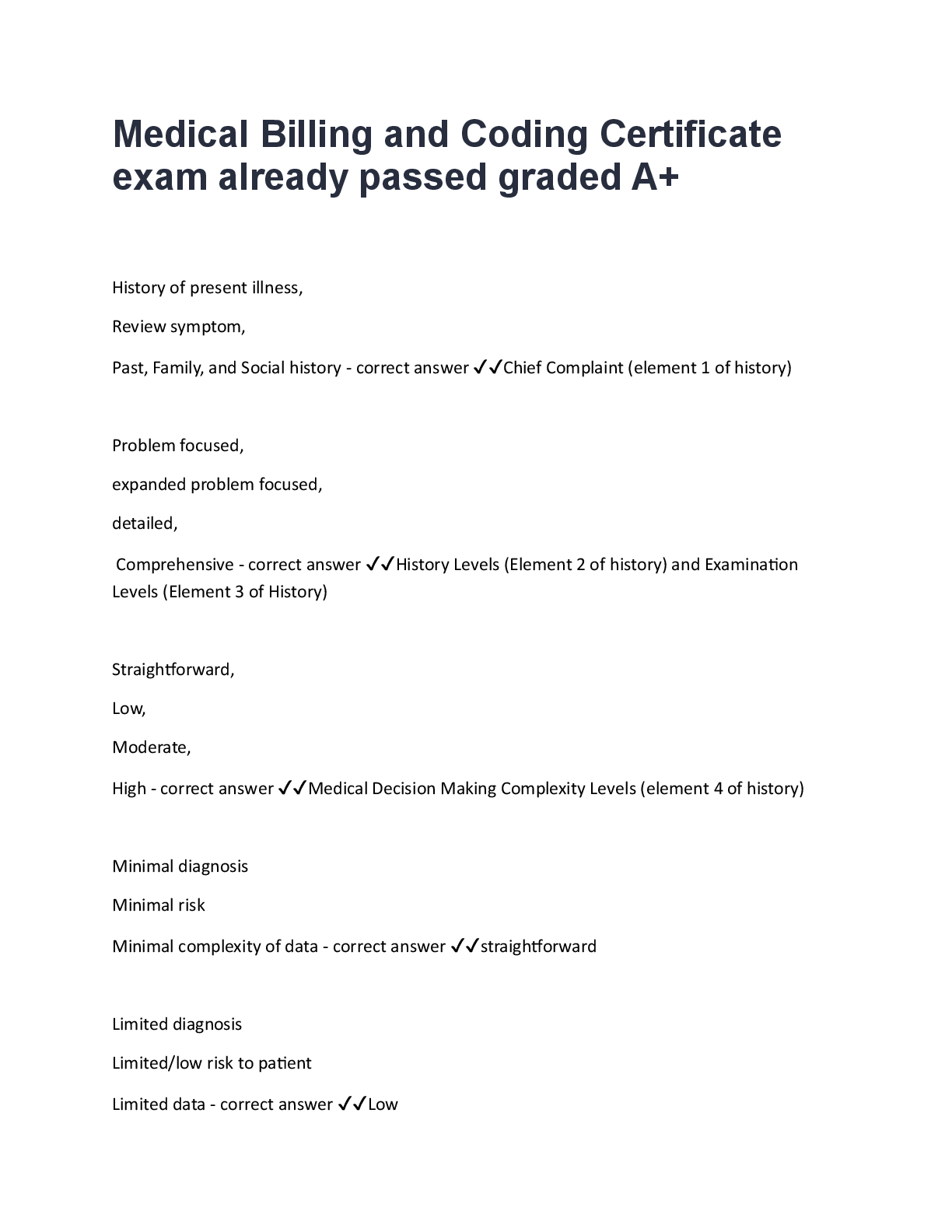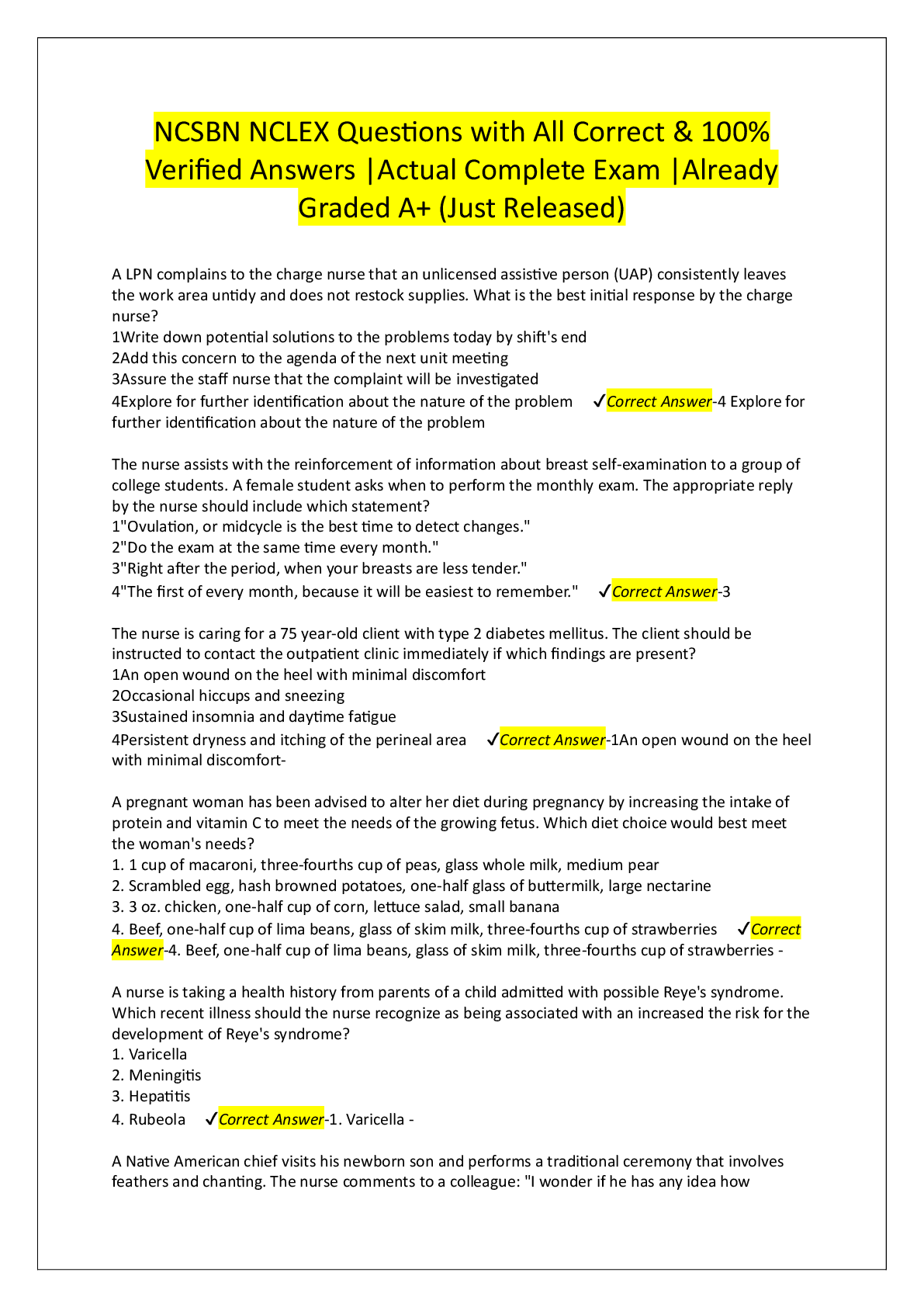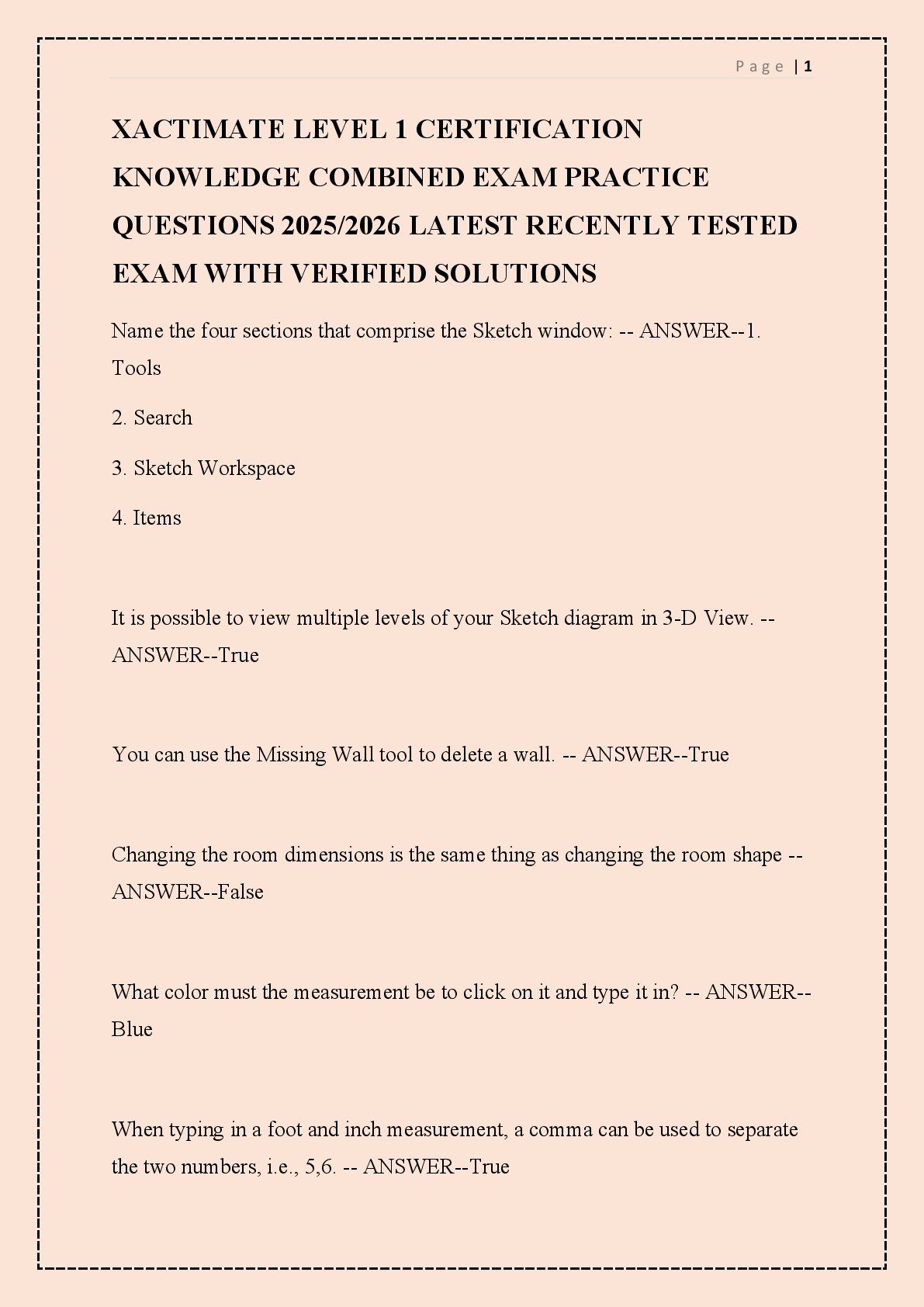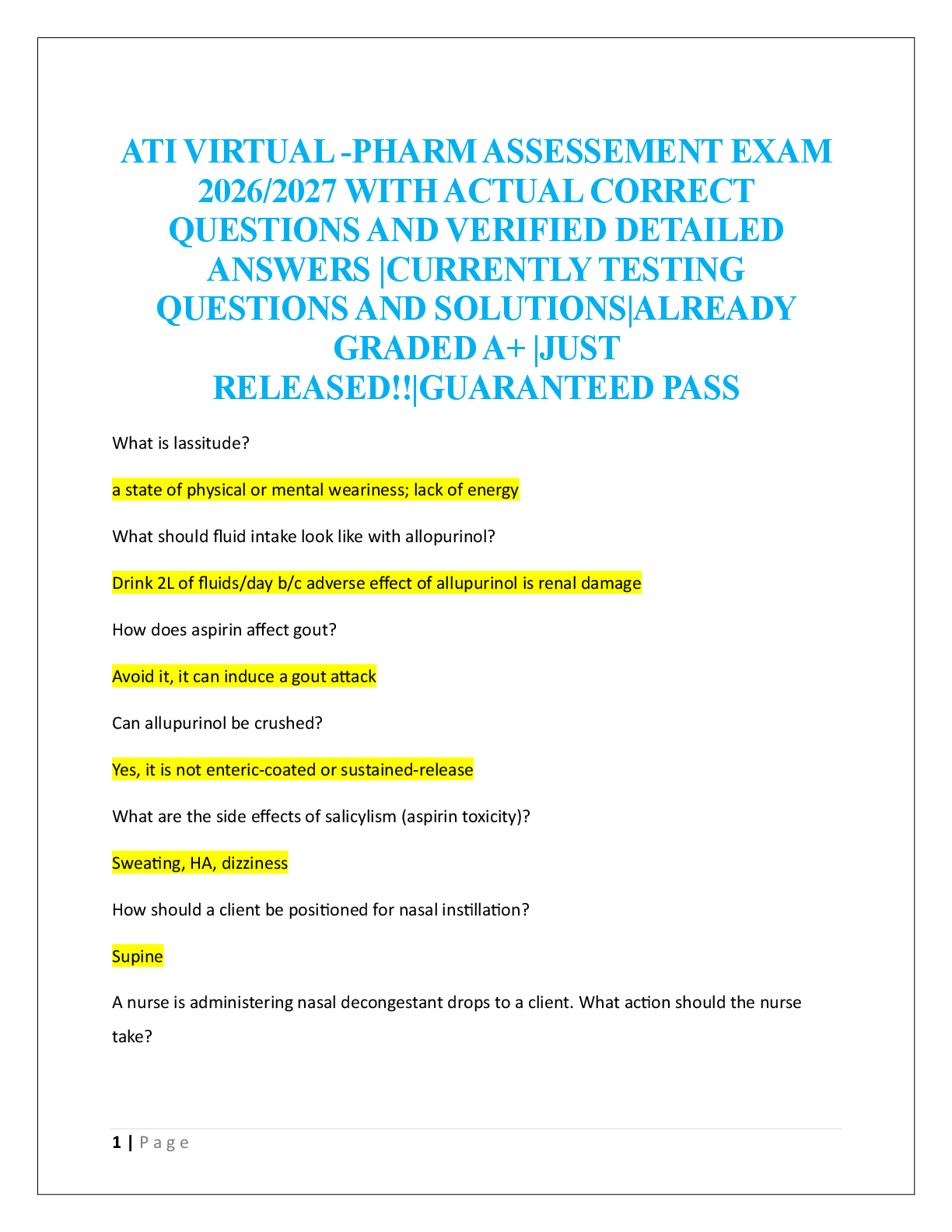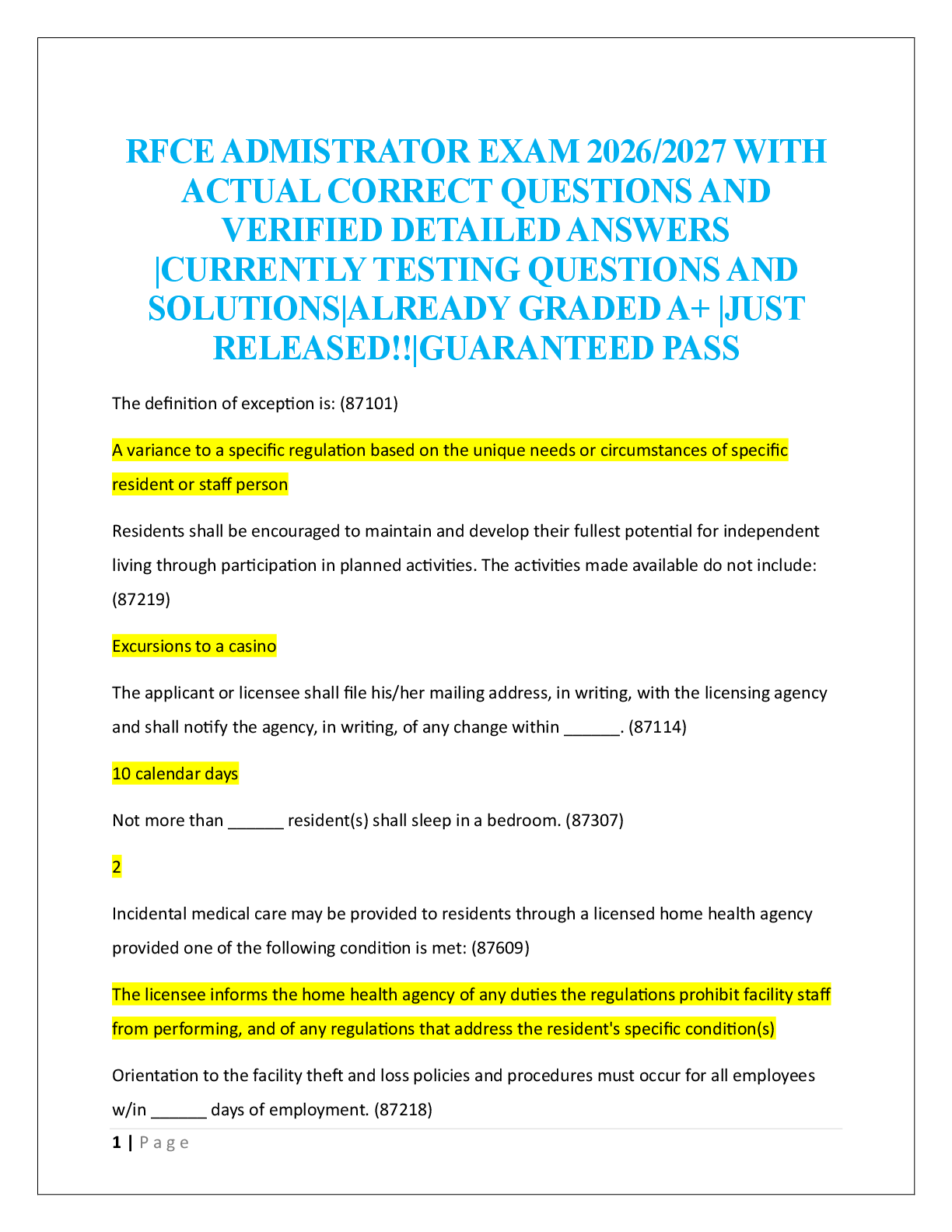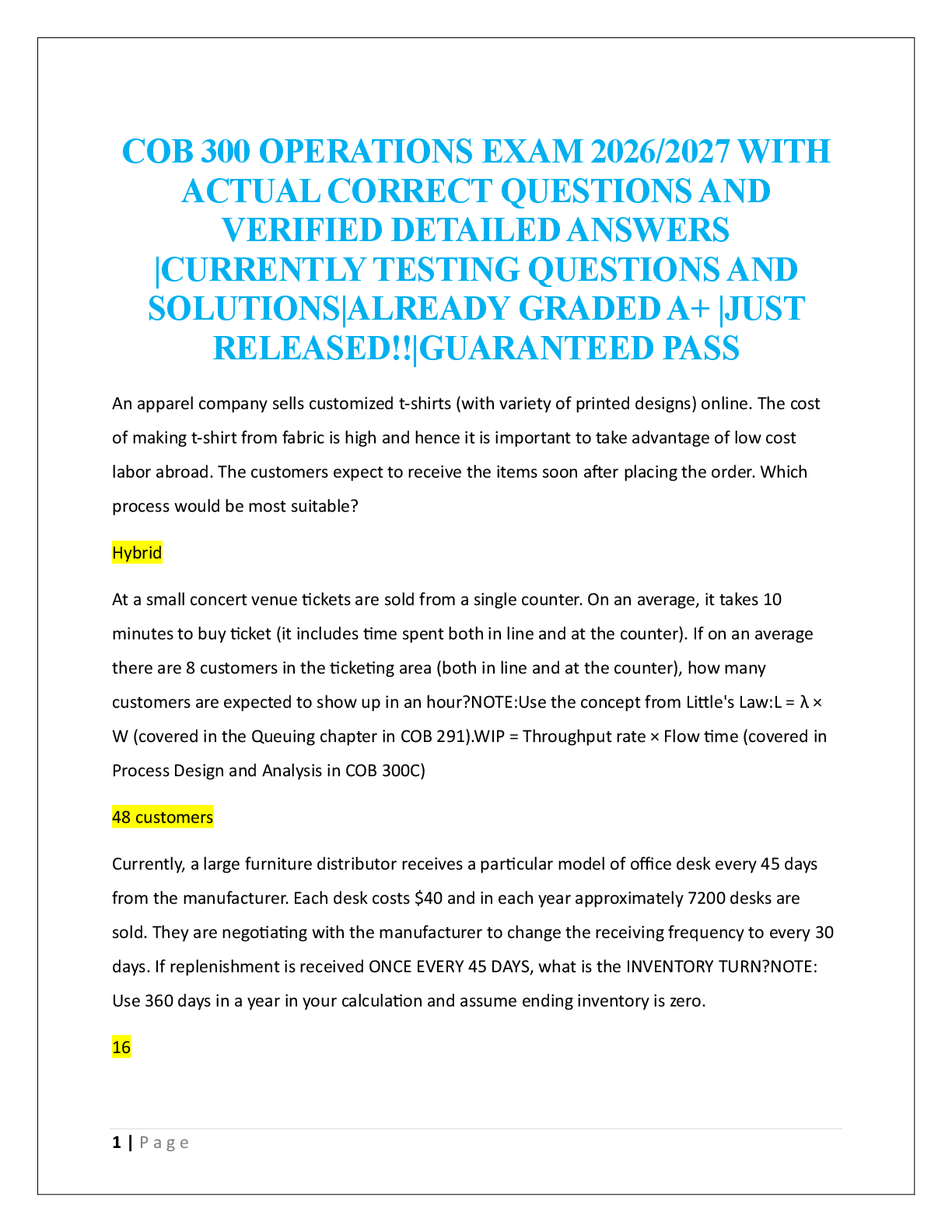2021(latest update) AORN PeriOp 101 Exam fully solved!
Document Content and Description Below
1. healthcare organizations 2. healthcare professionals 3. FDA should strengthen the focus of existing processes on patient safety issues 1. sense of trust among team members 2. development ... & support of proactive approach 3. dissemination & verification of receity of info to all levels of staff & management 4. sincere commitment to affirming safety as 1st priority Culture of Safety skill-based behavior errors generally occur when our attention is diverted and we fail to monitor the actions we are performing ex: a nurse inadvertently hits the wrong control button - the correct button is near the incorrect button knowlege-based performance errors occur when a nurse misinterprets a situation or incorrectly applies a rule ex: misinterpretation of test results, or a nurse fails to respond to a device alarm 1. distraction (background noise, conversations, radios) 2. fatigue & sleep loss 3. drugs (including alcohol & caffeine) 4. juggling multiple activities 5. stress 6. boredom 7. frustration 8. anxiety 9. anger 10. physical stamina d/t occupational muskuloskeletal injury (back/shoulder) situational factors which play a significant role in medical errors What precaution should be taken when microfibrillar collagen is used as a hemostatic agent intraoperatively? Avoid using it with an autologous blood salvage unit Drains that allow for passive drainage of fluid from the body: Penrose and T-tube Benefits of a standardized count procedure: 1. Assists accuracy 2. Assists efficiency 3. Human error studies have shown that many errors result from deviation Type of dressing used to prevent drying of the wound and increase the proliferation of epithelial cells: Occlusive When handling hemostatic agents such as collagen or gelatin sponges: Must not be injected or allowed to enter large vessels, as extensive intravascular clotting may occur. pledget non-absorbable suture used when there is a possibility of sutures tearing through tissue. common uses of a pledget vascular closure, septal repair, myocardial closure, heart valve suturing, hepatic repair ligature aka "tie" strand of material tied around a vessel to occlude the lumen a nd prevent bleeding transfixion suture type of ligature = crisscross stitch placed to control bleeding from a tissue surface or small vessel when it is tied bone wax mixture of beeswax, isopropyl palmitate and a softening agent, which provides a mechanical tamponade effect to stop oozing from cut bone surfaces. common uses of bone wax orthopedic and neurosurgical procedures and on the sternum during heart procedures mechanical hemostasis methods bone wax ligature pledget clamps sutures staples sponges direct pressure chemical hemostasis methods: pharmacological epinephrine vitamin K protamine lysine analogues (aminocaproic & tranexamic acid) chemical hemostasis methods: topical ACTIVE agents thrombins chemical hemostasis methods: topical PASSIVE agents 1. collagen-based gelatins 2. spheres 3. flowable agents 4. sealants Thermal/Energy hemostasis methods 1. High-frequency electric current from an ESU 2. Bipolar vessel-sealing devices 3. Laser energy sources 4. Ultrasonic energy 5. Radio frequency energy generated by Argon gas Responsible for the accuracy of the sponge count all perioperative personnel involved in a surgical case required to perform the sponge count 2 people, with one being the circulating RN simultaneously, audibly, separated The scrub person and circulating RN should count sponges _____ and _____as each sponge is _____ from the others in the pack. Counts should be conducted: 1. before the beginning of the operation 2. before any closure begins 3. when skin closure is begun 4. before circulating RN or scrub relief takes over 5. end of operation standard, PPE Use _____ precautions and _____ to prevent exposure to blood and body fluids when handling sponges. radiopaque Never use _____ sponges for postoperative wound dressings. sponges with radiopaque markers must be used: during any invasive procedure Radiopaque sponges are used to: drain pus, purulent, or necrotic material from a wound. Penrose drain is used for: abdominal surgery, peritoneal cavity, or skin wounds. Nasogastric drain used for decompression of the stomach: Levin tube Nasogastric drain used to treat obstructive lesions of the small intestine: Miller-Abbott [Show More]
Last updated: 2 years ago
Preview 1 out of 14 pages
 AORN PeriOp 101 Exam fully solved!.png)
Buy this document to get the full access instantly
Instant Download Access after purchase
Buy NowInstant download
We Accept:

Also available in bundle (1)
Click Below to Access Bundle(s)
 AORN PeriOp 101 Exam fully solved!.png)
Package deal of AORN PeriOP 101 COMPLETE SOLUTION 2023
2021(latest update) AORN PeriOp 101 Exam fully solved! 2021(latest update) AORN PeriOp 101 Exam fully solved! AORN PeriOP 101 Exam graded A+ already passed 2023 AORN test questions and answer...
By Favourfourtune 2 years ago
$60.5
19
Reviews( 0 )
$17.00
Can't find what you want? Try our AI powered Search
Document information
Connected school, study & course
About the document
Uploaded On
Feb 08, 2023
Number of pages
14
Written in
All
Additional information
This document has been written for:
Uploaded
Feb 08, 2023
Downloads
0
Views
119

